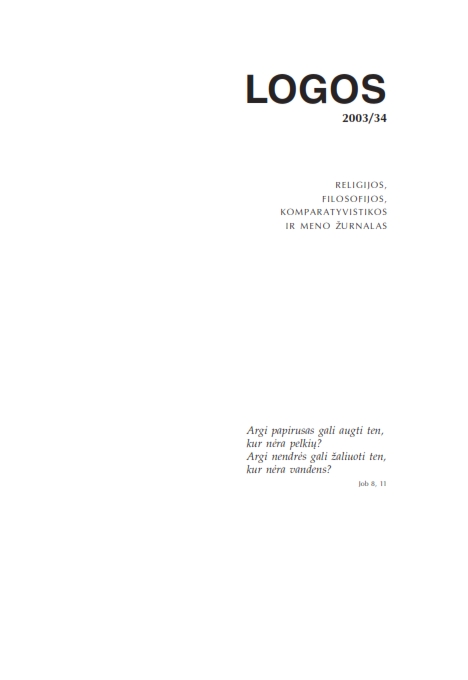Viduramžių autobiografas Petras Abelaras
The Medieval Autobiographer Peter Abélard
Author(s): Dalia Marija StančienėSubject(s): Metaphysics, Epistemology, Logic, Ethics / Practical Philosophy, Philosophy of Middle Ages, Philosophy of Religion
Published by: Visuomeninė organizacija »LOGOS«
Keywords: Peter Abélard; personality; autobiography Historia calamitatum;
Summary/Abstract: The philosopher and theologian Peter Abélard (1079-1142) was the first Medieval thinker who exposed human subjectivity as material for contemplation and the foundation for knowledge acquisition. According to M.-D. Chenu, this way Abélard awakened medieval consciousness. He contributed considerably to metaphysics, logic and ethics, and took an active part in the famous discussion concerning universals, enriching it by several questions: What is there in things which enables us to give them common names? If there are no actually existing universals, what do common names designate? If the things signified by universals cease to exist, would their names still mean the notion we have of these things? etc. He gave a new basis to ethics by valuing the intentions more than the results. An intention which itself is good can have as its effect a deed bad in itself, or inversely; but the moral act which a good intention dictates is always a good act, just as the one a bad intention dictates is always bad. But his most controversial achievement was bringing dialectics in theology in order to check the dogmas of the Church.
Journal: LOGOS - A Journal of Religion, Philosophy, Comparative Cultural Studies and Art
- Issue Year: 2003
- Issue No: 34
- Page Range: 116-122
- Page Count: 7
- Language: Lithuanian

